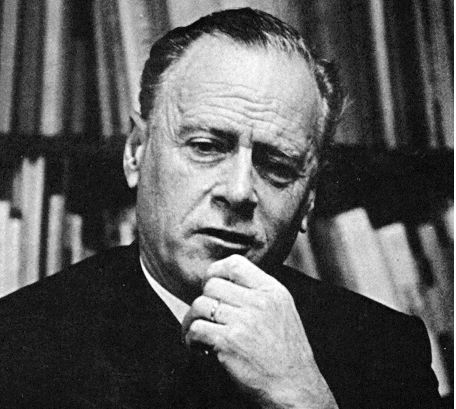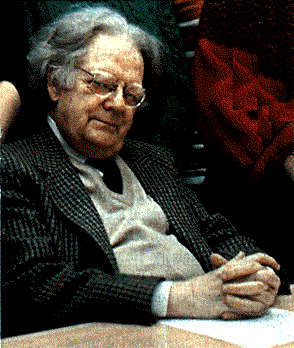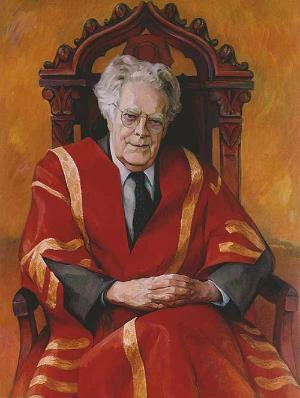Portishead, “Roads”
Nobel prize-winning economist Paul Krugman posted the video above at his blog in response to today’s debt ceiling bill.
Portishead, “Roads”
Nobel prize-winning economist Paul Krugman posted the video above at his blog in response to today’s debt ceiling bill.
http://www.youtube.com/watch?v=fFl3pWbfVX8
Matt Taibbi lands a haymaker.
A sample:
So the debt deal has finally been reached. As expected, the agreement arrives in a form that right-thinking people everywhere can feel terrible about with great confidence.
The general consensus is that for the second time in three years, a gang of financial terrorists has successfully extorted the congress and the White House, threatening to blow up the planet if they didn’t get what they wanted.
Back in 2008, the congress and George Bush rewarded Hank Paulson and Wall Street for pulling the Cleavon-Little-“the-next-man-makes-a-move-the-n—er-gets-it” routine by tossing trillions of bailout dollars at the same people who had wrecked the economy.
Now, Barack Obama has surrendered control of the budget to the Tea Party, whose operatives in congress used the same suicide-bomber tactic, threatening a catastrophic default unless the Democrats committed to a regime of steep spending cuts without any tax increases on the wealthy.
*
The Democrats aren’t failing to stand up to Republicans and failing to enact sensible reforms that benefit the middle class because they genuinely believe there’s political hay to be made moving to the right. They’re doing it because they do not represent any actual voters. I know I’ve said this before, but they are not a progressive political party, not even secretly, deep inside. They just play one on television.
For evidence, all you have to do is look at this latest fiasco.
The Republicans in this debt debate fought like wolves or alley thugs, biting and scratching and using blades and rocks and shards of glass and every weapon they could reach.
The Democrats, despite sitting in the White House, the most awesome repository of political power on the planet, didn’t fight at all. They made a show of a tussle for a good long time — as fixed fights go, you don’t see many that last into the 11th and 12th rounds, like this one did — but at the final hour, they let out a whimper and took a dive.
Frye once observed that “democracy should work as a force for the underprivileged.”
So much for that.
With the “deal” on the U.S. debt ceiling finally laid out, it can now be recognized as a disaster from every angle. It cuts government spending in a depressed economy, which may depress it further. Worse yet, the cuts are borne by those who can least afford it, and, scandalously, there is no provision for tax increases for those who can most afford it. The twisted, know-nothing Tea Party principle of non-creative destruction is now national policy (non-creative in the sense that too-big-to-fail privilege has replaced the sink-or-swim drive of competition). It provides still more proof that the only constituents the Republicans serve are corporations and the richest 1% of the population, whose effective income tax rate is already lower than that of the people who work for them. More than that, as corporate profits soar, job creation is stagnant and can’t even begin to address the millions who lost their jobs thanks to the criminal irresponsibility of Wall Street three years ago. Like a black comedy still in the early stages of laying out the dimensions of its blasted landscape, the Republicans have rebranded the super-rich as “job creators” who should not be expected to face the disincentive of tax increases. Job creators?
Obama might have invoked the 14th Amendment, which does not allow the United States to forfeit on its debts, in order to preempt this calamity. He didn’t. Why he didn’t is for him to explain. That he didn’t may cost him. For the first time he looks defeated and vulnerable as a new election cycle is about to begin in earnest. In any event, not invoking it has set a dangerous precedent that effectively promotes the Republican brand of crazy as the only thing the market will allow.
httpv://www.youtube.com/watch?v=Cw6xesXLIAA&playnext=1&list=PL468EB10CCDE15351
The first ten minutes: although it helped to define youth culture and shape popular music for a solid twenty years, these opening moments are as primitive as ham radio.
MTV launched on this date in 1981 at 12.01 am. The first video was The Buggles’ “Video Killed the Radio Star,” which, even though it’s not a great song, captured the expectant mood of the early 80s when anything seemed possible in popular music. Well, maybe that’s an overstatement. After the jump is the playlist for the first day, and there’s still a lot of the musky recent past hanging in there, such as the crushingly depressing Rod Stewart of the late 70s — and REO Speedwagon; more REO Speedwagon, in fact, than you’d likely want in an entire lifetime.
However, there’s some good stuff in there that made the whole thing seem very new and very promising: Elvis Costello, The Pretenders, David Bowie, The Specials, Kate Bush, Talking Heads, and, uh . . . okay, just those six (sorry, Pat Benetar fans). Sadly, devastatingly, the first appearance by a Canadian band was April Wine. Bryan Adams hadn’t been invented yet.
http://www.youtube.com/watch?v=QEDDYYoTiQ0&feature=related
With the recent centenary of Marshall McLuhan’s birth, it’s worth noting his presence in popular culture, a sustained example of which is David Cronenberg’s Videodrome. Brian O’Blivion, the film’s mad guru of physical transformation by way of electronic media, was inspired by McLuhan.

The McLuhan centenary has just passed, so I’m putting together a comprehensive collection of Frye quotes on McLuhan. It’ll be up very soon.
We are on the brink of global economic crisis because the Republicans are now morally insane. If you want to understand why this is happening, check out the eight second clip above of Mitch McConnell (R-Ky) articulating the Republicans’ underlying agenda. This is not a slip of the tongue. He’s said it a number of times, as recently as last week.
Andrew Sullivan offers an endgame scenario, whose goal may be impeachment:
They did the last Democratic president; and they feel even more strongly that this one is illegitimate, depite his thumping majority in the last election. Here’s the scenario. The House GOP pushes for completely unserious Boehner plan (including a balanced budget amendment) that they know will be vetoed; they then filibuster the Reid plan in the Senate, forcing Obama to invoke a 14th Amendment executive prerogative, which they will then turn around and impeach him for.
Far-fetched? I hope so. But every time you think you have reached the end of Republican extremism, they manage to move further out of the solar system. But it will take a huge effort by the propaganda machine on the right to make Obama’s decision not to default his fault, rather than the GOP’s. At this point, if the Reid plan cannot make it through the Senate on time or through the House at all, I’m beginning to believe that Obama should invoke this controversial power, given the extreme danger the stalemate is creating for both the US and the global economy, and challenge the courts to reverse it.
I suspect it would be popular among Independents. And allow Obama to regain the initiative over events dictated by a single faction in one party in one chamber whose fanaticism is only matched by their irresponsibility.

I asked Canadian Press reporter Jim Bronskill about how he discovered the RCMP’s Frye file. His response:
I cover security and intelligence issues for the Canadian Press, and take special interest in the historical dimensions of the beat. As a result, I examine old RCMP security files to see what names crop up. In some cases, there are entirely separate files on those individuals. The dossiers — if kept for posterity and transferred to Library and Archives Canada — can be obtained through the Access to Information Act twenty years after a person’s death. It is a bit of a guessing game to determine which people the Mountie spies kept files on. But when you zero in on one, it can provide telling glimpses of state security practices and the tenor of the times.
That’s certainly true in this instance. Despite the distressing twenty percent of Canadians who think it was acceptable for the RCMP to spy on Frye, the commentators at the Globe & Mail‘s website do not share that view by a pretty considerable margin.
Some examples:
What sort of country spies on its best and brightest?
*
Tommy Douglas – now Northrop Frye?
Is that what we pay taxes for? – spying on Canadian leaders who openly and democraticaly oppose the economic and political elties?
*
And soon all Canadian’s will be spied on starting this fall – when the Cons bring in legislation requiring your Internet company to keep a record of all your online activity
… which will be accessible to the police WITHOUT warrant.
Scary stuff.
(Don’t criticize anyone too much!)
*
Here are a couple of people who are clearly twenty percenters:
Intelligence organizations can’t leave people off the radar just because they are intelligent. Many intelligent people are complete lunatics. The Norwegian sniper is a good example.
*
Never heard of him and I’m guessing the majority of Canadians haven’t either.

“The whole appeal of Sherlock Holmes,” Frye writes, “was connected with his ability to notice ordinary details. Here again is the dialectic between the all-seeing eye of God & of the spy of the state with his ‘telescreen.'” In Anatomy of Criticism Frye links the telescreen with the “humiliation of being watched by a hostile or derisive eye,” a theme in the tragedies of such figures as Prometheus and Milton’s Samson.
I’m reminded of two stories from Frye’s early life, one more or less innocent, the other malicious.
When he was a student circuit rider on the Saskatchewan prairies, he reported that whenever his horse Katy “broke into a trot you had to stand straight up in the stirrups and let the saddle come up and caress your backside at intervals. I remember something that I found later in a Canadian critic, I think it was Elizabeth Waterson, who spoke of the prairies as the sense of immense space with no privacy. And I found that on top of Katy, who naturally stimulated one’s bladder very considerably. I realized that I couldn’t get off in that vast stretch of prairie because everybody was out with opera glasses, you see, watching the preacher on top of Katy. That was what people did. They all had spy glasses. They weren’t doing it with any malicious sense. It was just that their lives were rather devoid of incident, and naturally they liked to see who was going along. It wasn’t their fault.”
And now the sinister tale, recorded by Frye in one of his diaries:
“I often wonder about intuitive racial-stereotype thinking: a lot of it’s balls. For instance, there’s a big good-natured German in Moncton called Lichtenberg who had been a peaceful, thrifty, industrious contractor there for thirty years. For two wars the local Gestapo have cut their teeth on him: when the news is bad or they get tired of reading spy stories they’d go up and practise on him. Recently the Gestapo combed his whole house over, in response to some silly anonymous ‘tip,’ & one of them found two large knobs in a dark closet. ‘Aha!’ he said, stepped into the closet & gave one a twist, thinking of course it was a private transmitter set. It was an extra shower he’d installed. Incidentally, he’s a naturalized Canadian citizen, but married before that, so his wife, who belongs to one of the oldest Maritime families, is an enemy alien. Well, Dad’s friendship for Lichtenberg has come in for much unfavorable comment in that stinking little kraal Moncton, & the stinkers point out gleefully that ‘Frye’ is really a German name, & that I look just like a German. It’s a beautiful theory, only it just happens to be wrong.”

Thanks to Jim Bronskill of the Canadian Press, we now know that the RCMP kept a classified dossier on Frye between 1960 and 1972. Here he is on privacy and the free mind:
If certain tendencies within our civilization were to proceed unchecked, they would rapidly take us towards a society which, like that of a prison, would be both completely introverted and completely without privacy. The last stand of privacy has always been, traditionally, the inner mind. . . A society entirely controlled by slogans and exhortations would be introverted, because nobody would be saying anything; there would only be echo, and Echo was the mistress of Narcissus. It would also be without privacy because it would frustrate the effort of the healthy mind to develop a view of the world which is private but not introverted, accommodating itself to opposing views. (CW 11, 20)